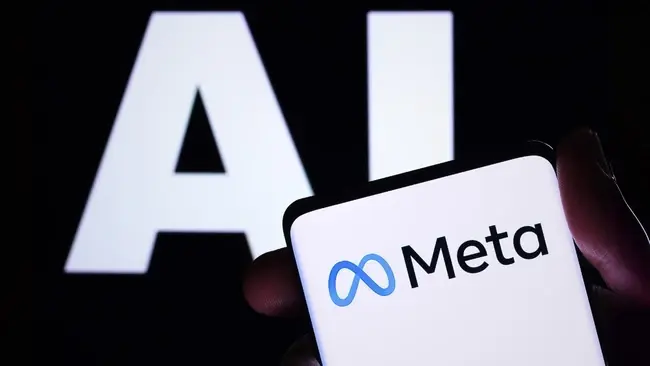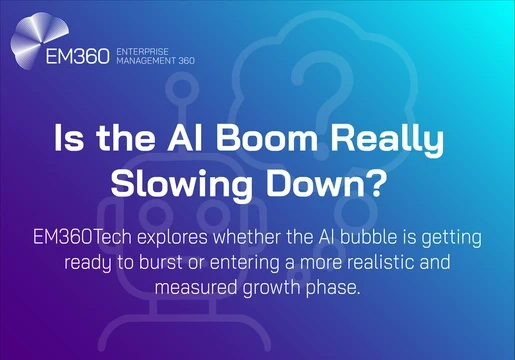Shares in Meta have fallen dramatically overnight after the company announced it would need to spend billions to continue developing its AI.
The company – which owns Facebook, WhatsApp and Instagram – saw a more than 15% drop in share price in after-hours trading despite reporting strong revenue and profits for the first three months of the year.
Its revenue was $36.5 billion in the first quarter, up 27 per cent from $28.6 billion a year earlier and slightly above Wall Street estimates of $36.1 billion. Profit was also $12.4 billion, more than double the $5.7 billion a year earlier.
The news comes less than a week after the launch of Llama 3, which brought Meta’s new large language model (LLM) to social platforms and a sneak-peak into an even more powerful version of its AI.
But Meta’s continued focus on Meta’s AI comes with a lofty price tag, and while CEO Mark Zuckerberg is happy to pay the price, the company’s shareholders aren’t.
Zuckerberg said the company planned to raise its spending forecast for the year to $40 billion, a move driven by heavy investments in AI infrastructure, including data centres, chip designs, and research and development.
Boss Mark Zuckerberg said it would take some time before its huge AI investment increased revenues.
“Historically, investing to build these new scaled experiences in our apps has been a very good long-term investment for us and for investors who have stuck with us,” Zuckerberg said on the first quarter earnings call, drawing an analogy to the rollouts of Stories and Reels.
“And the initial signs are quite positive here, too. But building the leading AI will also be a larger undertaking than the other experiences we’ve added to our apps, and this is likely going to take several years.”

What happened to Meta's Share Price?
Meta's share price fell sharply after the company released its first-quarter earnings report on April 24th, 2024. The stock price dropped by around 12.38% to $432.40. Meta announced that it was raising its spending forecast for the year, to invest in new AI products and infrastructure. Investors were concerned about the impact this would have on profitability.
While Meta's Q1 results beat expectations, their forecast for Q2 revenue came in slightly lower than what analysts had predicted. This spooked some investors and led to a sell-off.
Commercializing Meta AI
Zuckerberg said that the Meta AI assistant has been “tried” by “tens of millions of people” since it was officially released last week, though that’s to be expected given how it's now prominently featured in areas like the Facebook search box.
The real test will be whether Meta AI becomes a product that people come back to often and if lots of people want to use an AI assistant in social media apps.
Still, Zuck sees multiple ways to monetize its assistant, which is free to use right now.
“There are several ways to build a massive business here, including scaling business messaging, introducing ads or paid content into AI interactions, and enabling people to pay to use bigger AI models and access more compute,” Zuckerberg said.
“And on top of those, AI is already helping us improve app engagement, which naturally leads to seeing more ads and improving ads directly to deliver more value.”
Zuckerberg suggested that the usage of Meta AI could also improve the quality of its ads, which implies that the company will analyze the way people use its assistant to better understand what they’re interested in buying.
This approach puts Meta on a different path to OpenAI, which has, so far, resisted advertising as a business model in favour of subscriptions and a nascent enterprise focus.
From Metaverse to AI
Zuckerberg’s new-born obsession with AI is not the first time the CEO’s focus on new and exciting tech has caused a rift among investors.
The company had initially hung back on developing the tech it needs to support AI features with the distraction of the company’s rebrand and Zuckerberg’s fixation on the metaverse.

Read: What Happened to the Metaverse? How Zuck’s VR Dream Failed
This lost the company millions over the past year and it has battled a drop in advertising revenue across its social platforms due to macroeconomic tensions and a shift in consumer behaviour as the Metaverse takes the back seat to AI.
The impact of this transition led Zuckerberg, who previously championed the metaverse as the future of the internet and business collaboration a mere 18 months ago, to call 2023 “the year of efficiency."







Comments ( 0 )